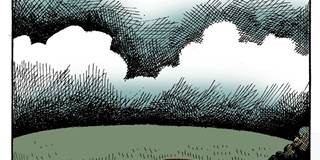Five Steps Forward in 2011
The worst of the economic worst ended for most of the world in 2010, but downside risks in the advanced countries continue to threaten global recovery. A return to stable, inclusive growth is needed to bolster support for economic openness, but achieving this requires meeting five key goals.
MILAN – The worst of the financial/economic crisis seems to be over. Asset markets performed reasonably well in 2010. Growth in the United States and parts of Europe returned. Private-sector deleveraging continued, but was counter-balanced by rising public-sector deficits and debt. And emerging-market growth returned to pre-crisis levels and appears to be sustainable, helped by unorthodox policies designed to “sterilize” massive capital inflows.
But continued high growth in emerging markets depends on avoiding a second major downturn in the advanced economies, which continue to absorb a large (though declining) share of their exports. Slow growth is manageable. Negative growth is not.
Thus, for the emerging economies, advanced countries downside risks and the spillover effects of their recovery policies are the key areas of concern. In several advanced countries, including the US, growth and employment prospects are starting to diverge widely, endangering social cohesion and economic openness.



MILAN – The worst of the financial/economic crisis seems to be over. Asset markets performed reasonably well in 2010. Growth in the United States and parts of Europe returned. Private-sector deleveraging continued, but was counter-balanced by rising public-sector deficits and debt. And emerging-market growth returned to pre-crisis levels and appears to be sustainable, helped by unorthodox policies designed to “sterilize” massive capital inflows.
But continued high growth in emerging markets depends on avoiding a second major downturn in the advanced economies, which continue to absorb a large (though declining) share of their exports. Slow growth is manageable. Negative growth is not.
Thus, for the emerging economies, advanced countries downside risks and the spillover effects of their recovery policies are the key areas of concern. In several advanced countries, including the US, growth and employment prospects are starting to diverge widely, endangering social cohesion and economic openness.